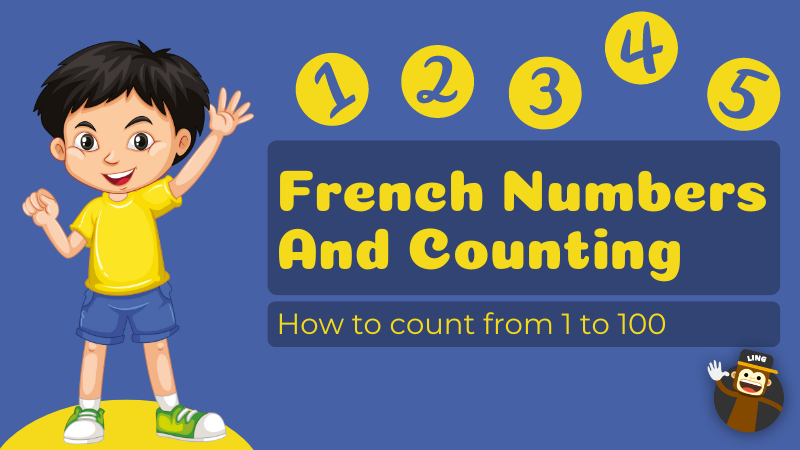Would you like to know more about French numbers and counting? Leaning the numbers in French can be challenging because of the variation and the different rules that have to be memorized.
Fortunately, there is a pattern that can be followed with most numbers. Numbers are essential in daily life since they are needed to buy food, tell the time, and the date, pay for the food at a restaurant, and many other things.
This article goes over how to learn counting in French easily.
Basics Rules For The French Numbers And Counting
In French, you have to memorize the numbers 1 to 20; after that, there is a repetitive pattern that can help you to remember how to tell the numbers from 21 to 99.
You have to remember how to say 20, 30, 40, 50, 60, 70, etc., and add one of the numbers from 1 to 9, as needed (see the examples and sections below).
Basic Numbers Pronunciation Rules
There are specific rules to follow in pronouncing certain numbers. In specific cases, the pronunciation might change depending on the word that follows the numbers, particularly if they start with a vowel or consonant.
The most crucial pronunciation rules concern the numbers six, eight, and ten (“six,” “huit,” and “dix”)
There are three possible outcomes:
- Six, eight, and ten are the last numbers of a sentence
- Six, eight, and ten are followed by a word starting with a consonant
- Six, eight, and ten are followed by a word beginning with a vowel
As a general rule, if there is a word starting with a consonant following one of these numbers, the last letter of the number is not pronounced.
For example:
- j’ai six voitures (I have six cars)
In this case, six is pronounced “see” without reading the last letter of the number. The same is for ten and eight, which are pronounced:
- Huit voitures (eight cars) – wee
- Dix voitures (ten cars)- dee
In case the following word starts with a vowel, then the numbers “six” and “dix” are pronounced with a “z” at the end.
For example:
- Je veux six oeufs (I want six eggs) – seez
- Je veux dix oeuf (I want ten eggs) – deez
In case six, eight, and ten are the last word in a sentence, here is how you pronounce them:
- Six (seese)
- Huit (weet)
- Dix (deese)
Numbers From One To Twenty In French
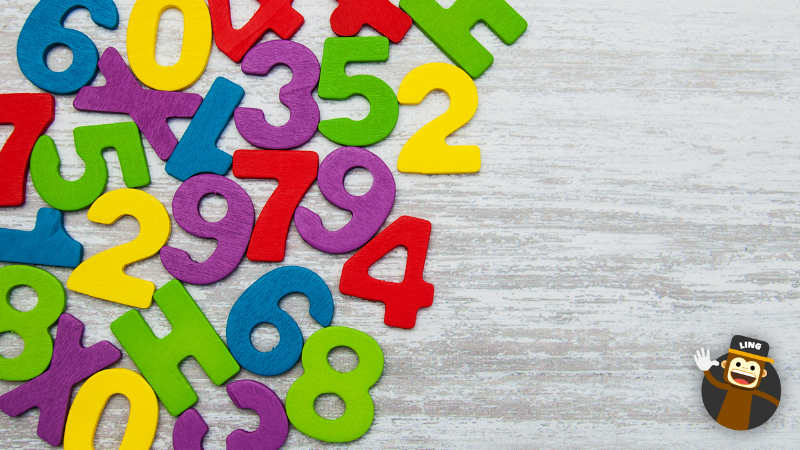
Here is how to tell the numbers from one to twenty in French:
- 1 un
- 2 deux
- 3 trois
- 4 quatre
- 5 cinq
- 6 six
- 7 sept
- 8 huit
- 9 neuf
- 10 dix
- 11 onze
- 12 douze
- 13 treize
- 14 quatorze
- 15 quinze
- 16 seize
- 17 dix-sept
- 18 dix-huit
- 19 dix-neuf
- 20 vingt
Numbers From 21 To 99 In French
When counting from 20 to 69, you must use the tens word, for example, twenty, thirty, forty, and fifty (in French), and add the numbers from one to ten after the hyphen.
However, to make the words 21, 31, 41, and 51, you have to use “et” instead of the hyphen.
Numbers From 21 To 29
Here are the numbers from 21 to 29:
- 21 vingt et un
- 22 vingt-deux
- 23 vingt-trois
- 24 vingt-quatre
- 25 vingt-cinq
- 26 vingt-six
- 27 vingt-sept
- 28 vingt-huit
- 29 vingt-neuf
Numbers From 30 To 39
Here are the numbers from 30 to 39 in French:
- 30 trente
- 31 trente et un
- 32 trente-deux
- 33 trente-trois
- 34 trente-quatre
- 35 trente-cinq
- 36 trente-six
- 37 trente-sept
- 38 trente-huit
- 39 trente-neuf
Numbers From 40 To 49
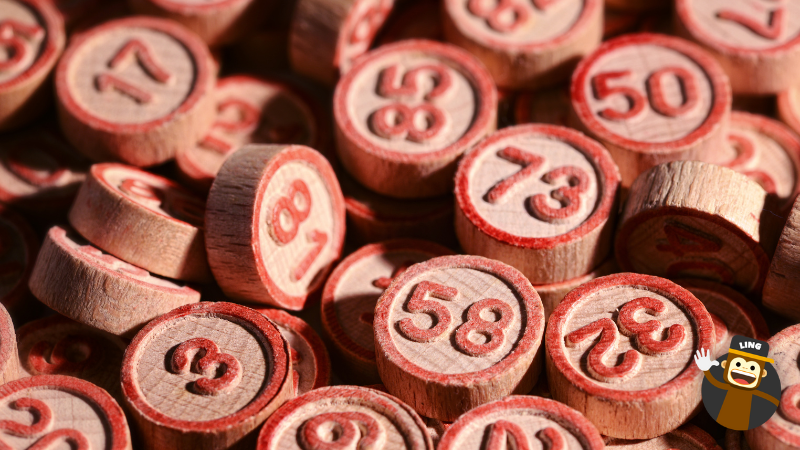
Here are the numbers from 40 to 49:
- 40 quarante
- 41 quarante et un
- 42 quarante-deux
- 43 quarante-trois
- 44 quarante-quatre
- 45 quarante-cinq
- 46 quarante-six
- 47 quarante-sept
- 48 quarante-huit
- 49 quarante-neuf
Numbers From 50 To 59
Here are the numbers from 50 to 59:
- 50 cinquante
- 51 cinquante et un
- 52 cinquante-deux
- 53 cinquante-trois
- 54 cinquante-quatre
- 55 cinquante-cinq
- 56 cinquante-six
- 57 cinquante-sept
- 58 cinquante-huit
- 59 cinquante-neuf
Numbers From 60 To 69
Here are the numbers from 60 to 69:
- 60 soixante
- 61 soixante et un
- 62 soixante-deux
- 63 soixante-trois
- 64 soixante-quatre
- 65 soixante-cinq
- 66 soixante-six
- 67 soixante-sept
- 68 soixante-huit
- 69 soixante-neuf
Numbers From 70 To 79
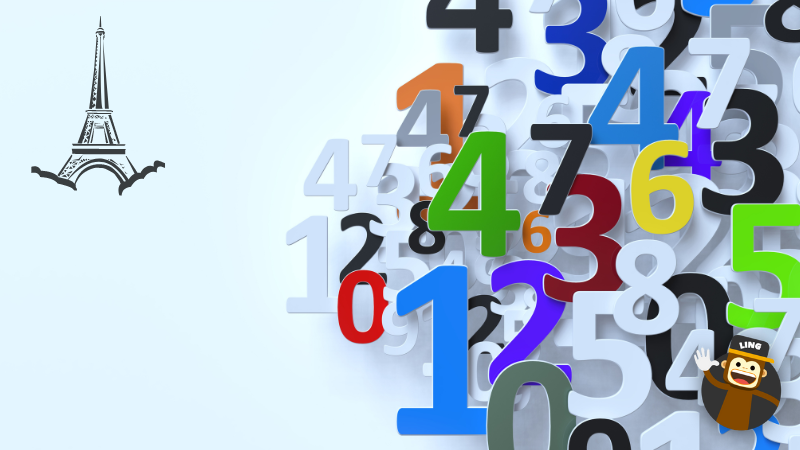
Here are the numbers from 70 to 79:
- 70 soixante-dix
- 71 soixante et onze
- 72 soixante-douze
- 73 soixante-treize
- 74 soixante-quatorze
- 75 soixante-quinze
- 76 soixante-seize
- 77 soixante-dix-sept
- 78 soixante-dix-huit
- 79 soixante-dix-neuf
Numbers From 80 To 89
There is a slight change in the composition of the word; in fact, to say 80, you should literally say ” four times twenty” ( quatre-vingts) and add the numbers from one to 9 to make the number you want.
Here are the numbers from 80 to 89.
80 quatre-vingts
81 quatre-vingt-un (it’s just vingt-un without the “et”)
82 quatre-vingt-deux
83 quatre-vingt-trois
84 quatre-vingt-quatre
85 quatre-vingt-cinq
86 quatre-vingt-six
87 quatre-vingt-sept
88 quatre-vingt-huit
89 quatre-vingt-neuf
Numbers From 90 To 99
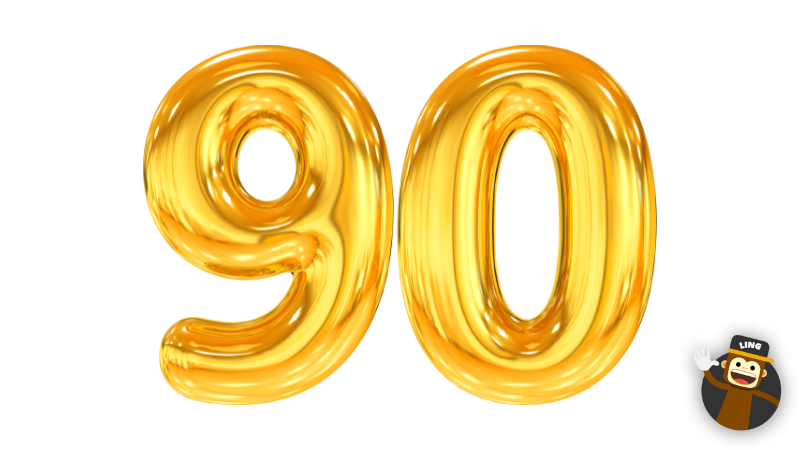
Similarly to the numbers from 80 to 89, the numbers from 90 to 99 are composed by literally saying ” four times twenty plus ten” ( quatre-vingt-dix) or the numbers from 11 to 19 to make the number you need.
Here are the numbers from 90 to 99:
- 90 quatre-vingt-dix
- 91 quatre-vingt-onze
- 92 quatre-vingt-douze
- 93 quatre-vingt-treize
- 94 quatre-vingt-quatorze
- 95 quatre-vingt-quinze
- 96 quatre-vingt-seize
- 97 quatre-vingt-dix-sept
- 98 quatre-vingt-dix-huit
- 99 quatre-vingt-dix-neuf
Finally, the word hundred is cent.
Ordinal Numbers In French
Ordinal numbers are used when there is a sequence or an order, such as in which position someone is compared to others.
Here are the French ordinal numbers from one to ten:
- Premier/première – First
- Deuxième – Second
- Troisième – Third
- Quatrième – Fourth
- Cinquième – Fifth
- Sixième – Sixth
- Septième – Seventh
- Huitième – Eighth
- Neuvième – Ninth
- Dixième – Tenth
Would you like to learn more about the French language?
Learn French With Ling App

Learning French is easier with a tool that can guide you efficiently through a specific path. The Ling App can help you.
With this learning tool, you can learn grammar, pronunciation, verbs, sentence structure, and many things about French culture. In addition, if you are curious about other languages, you can choose between 60+ other options and start learning two or more languages simultaneously.
Meanwhile, you can learn more about French culture and language by reading how to say Happy Birthday In French and Ask How Are You In French.
What are you waiting for? Download it from App Store and Play Store for free!
